The Plextor M6V (256GB) SSD Review
by Billy Tallis on October 12, 2015 8:00 AM ESTSequential Read Performance
Just like the random read test, sequential reads are tested across the span of a full drive and a representative sample of queue depths. Most operations involving large files (typically images and videos) fall under this test's purveiw, but streaming or playing even the highest resolution videos won't be a challenge for any of these drives. Copying files to another SSD or loading a new level in a video game would be more likely to show noticeable difference from better performance here.
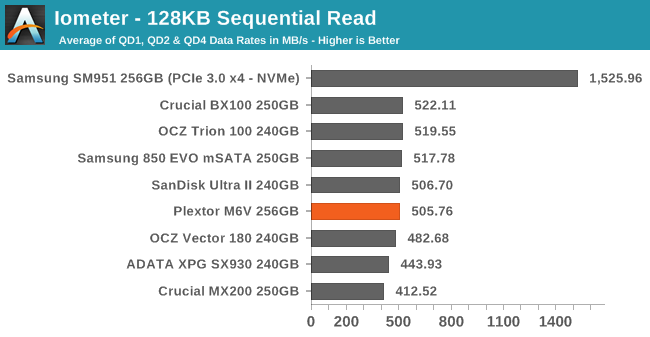
The SATA interface's speed limit determines almost everything in this graph. Almost all drives, including the M6V, are close enough that the differences hardly matter.
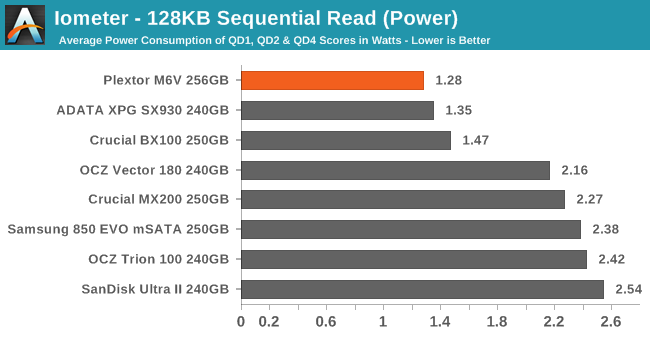
On the other hand, power consumption varies considerably. The TLC drives are at the bottom as usual, and the M6V is at the top with only a little bit of competition.
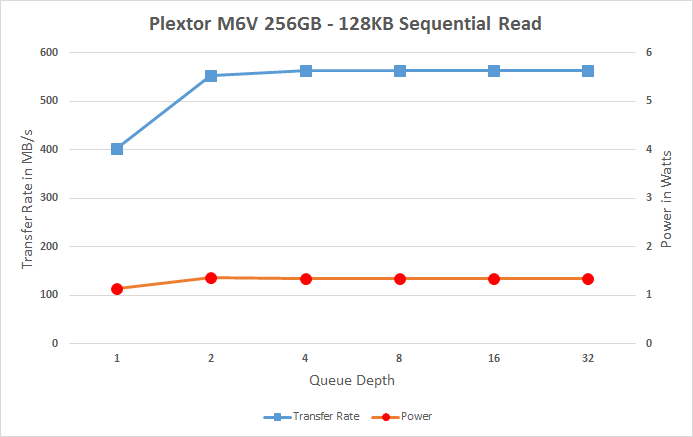 |
|||||||||
| Default | |||||||||
The queue depth scaling reveals the source of the variation in the averages above. The only drives below the M6V in performance are the ones that can't hit the limit at a queue depth of two, and the drives above the M6V all have better QD 1 performance.
Sequential Write Performance
The sequential write isn't limited to a small span of the disk, as that usually doesn't make a difference for this performance metric. As always, our averages are of the lower queue depths, but scaling to higher queue depths is also investigated. Bulk file copies and recording uncompressed video are the kind of uses that depend on sequential write performance.
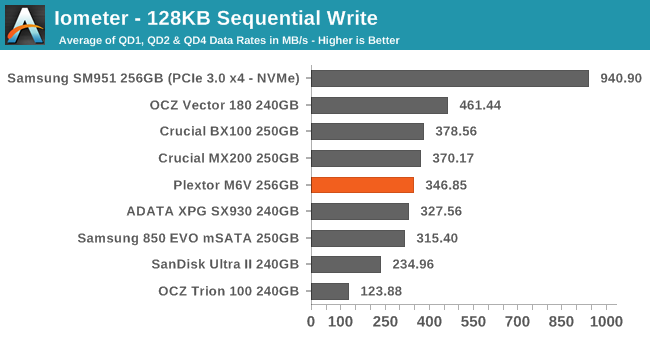
The M6V is back in the middle of the pack, and none of the SATA drives of this size are quite able to reach the limit of the interface.
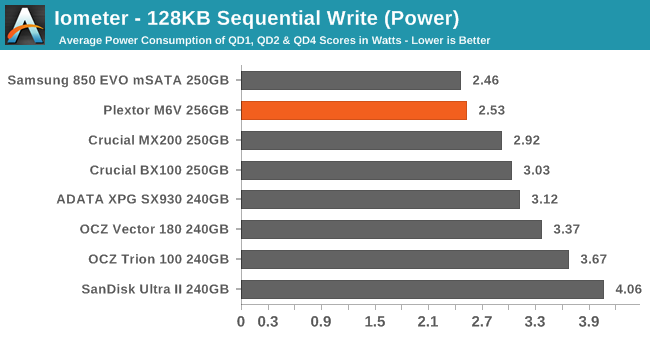
The M6V doesn't quite take first place for power consumption, but it comes within spitting distance of the surprisingly efficient Samsung 850 EVO.
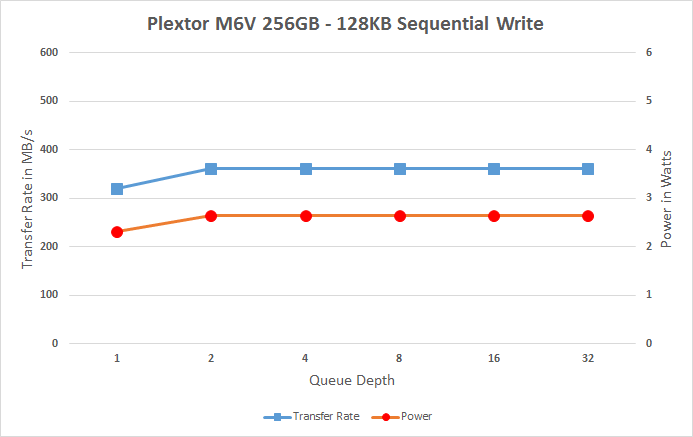 |
|||||||||
| Default | |||||||||
Most drives have flat performance across this test, indicating that a 128kB block of data is already large enough for the drive to extract all the speed it can.










51 Comments
View All Comments
StrangerGuy - Monday, October 12, 2015 - link
Yet another new SSD article on AT that ends up showing how it gets destroyed by Samsung in overall specs/price.franz899 - Monday, October 12, 2015 - link
Actually the Crucial BX100 is a better choice looking at the scores.medi03 - Monday, October 12, 2015 - link
Nope, not to note it isn't even present on many screens and MX200 is a different product.SmokingCrop - Tuesday, October 13, 2015 - link
The BX series is better bang for the buck, you won't notice the speed difference with the popular samsung drives.salimbest83 - Wednesday, October 14, 2015 - link
im shopping for new 240GB+ ssd. looks like BX100 is the way to go rite?Billie Boyd - Friday, November 27, 2015 - link
I rather go with AMD Radeon R7 series. Its one of the highly rated high drives in the market (see http://www.consumerrunner.com/top-10-best-hard-dri... for example)emn13 - Tuesday, October 13, 2015 - link
Assuming this is a low-end drive i.e. cheaper than the 850 pro, it looks like it outperforms the 850 evo mSata pretty much across the board, getting close to crucial's BX100.FriendlyUser - Tuesday, October 13, 2015 - link
As an owner of 2x840 EVO and 2xPlextor, I can tell you the Samsung's bug was a major disappointment. Read performance after months simply sucks and I had to patch the firmware 2-3 times and regularly "manually" freshen the data with the samsung tool. I have way more confidence in the Plextor firmware. Never again Samsung.AnnonymousCoward - Friday, October 16, 2015 - link
...yet another SSD article on AT that focuses on the pointlessness of non-real world benchmarks. Readers will leave this article without having a clue what boot time differences to expect between drives, or any other metric. I've been saying this for years. HardOCP finally caught on. http://tinyurl.com/pvyzmaudj_aris - Monday, October 12, 2015 - link
What is the purpose of reviewing SATA SSD drives? Anyone in the market for a drive should either buy a spinning HDD for storage or a PCIe for speed.